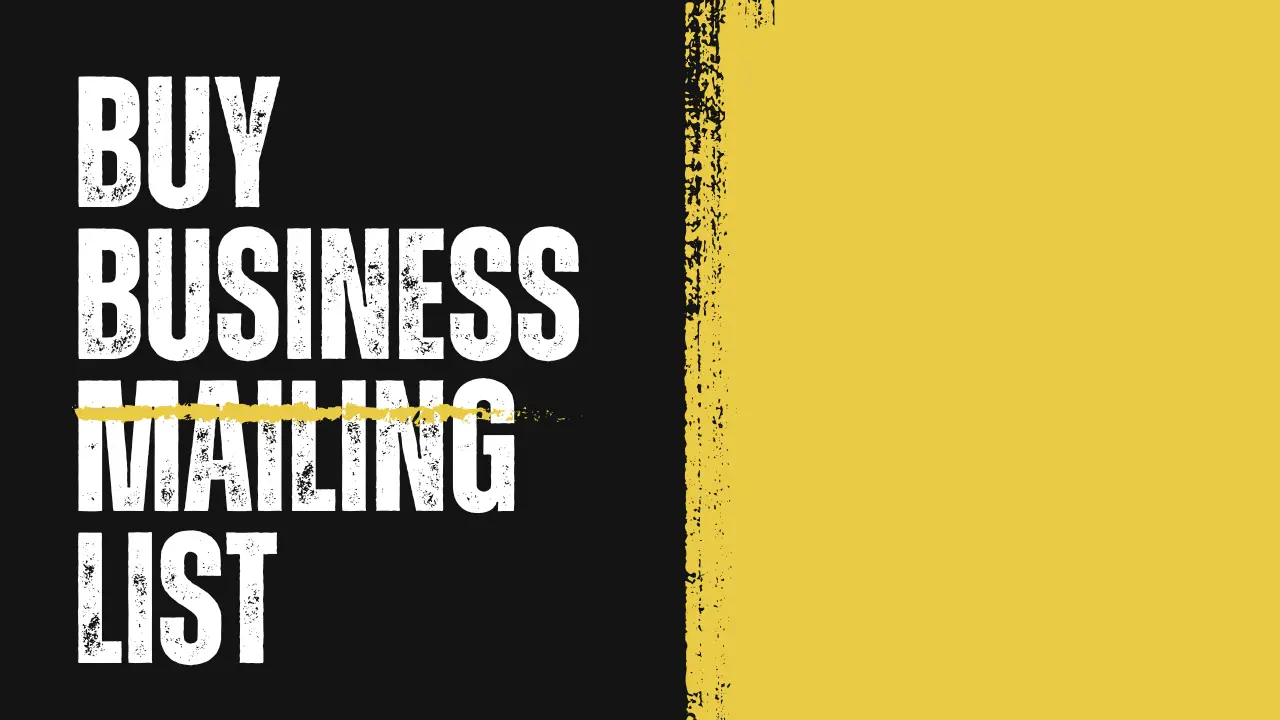The Inconvenient Truth: Quality vs. Quantity
The biggest issue with purchased business mailing lists is the quality of the data. The lists are often scraped from public directories, outdated websites, and other dubious sources. This means a significant portion of the email addresses may be invalid, misspelled, or belong to people who no longer work at the company. You're not just Get instant access to thousands of email leads – only on country email list buying a list of potential customers; you're buying a list of unknown entities, many of whom have no interest in your business. When you send emails to these addresses, a high percentage will bounce, which is a major red flag for email service providers (ESPs). High bounce rates can lead to your emails being flagged as spam, damaging your sender reputation, and ultimately causing your legitimate emails to land in junk folders. Furthermore, the people who do receive your email are likely to be annoyed. They never opted-in to your list, and your unsolicited message is an unwelcome intrusion. This can lead to a high volume of spam complaints and unsubscribes, further harming your deliverability.
The Legal and Ethical Minefield
Beyond the practical problems, there are significant legal and ethical considerations to buying and using a business mailing list. Depending on your location and the location of your recipients, you could be violating various data privacy regulations, such as GDPR (General Data Protection Regulation) in Europe or the CAN-SPAM Act in the United States. These regulations have strict rules about obtaining consent before sending commercial emails. Sending unsolicited emails to a purchased list is a direct violation of these rules, and the penalties can be severe, including hefty fines. Ethically, it's a poor business practice. You are essentially spamming people who have not given you permission to contact them. This not only tarnishes your brand's reputation but also contributes to the problem of email spam that everyone dislikes. Building a relationship with a customer is about trust, and you can't build trust by starting with a violation of their privacy.

The Smarter, More Sustainable Path
So, what's the alternative? The answer, while not as fast, is infinitely more effective and sustainable: build your own list. Focus on creating valuable content that attracts your ideal customer. Offer a lead magnet, such as an e-book, a webinar, a cheat sheet, or a free trial, in exchange for their email address. This ensures that every person on your list has actively opted-in and is genuinely interested in what you have to offer. The quality of these leads is exponentially higher than anything you could buy. You're building a community of people who want to hear from you. The size of your list is less important than the engagement of your subscribers. A small list of highly engaged, interested subscribers will generate far more sales and loyalty than a massive, disengaged, and resentful list of purchased leads. It's a long-term strategy that pays dividends in brand reputation, customer loyalty, and ultimately, sustainable business growth.
Final Thoughts: Buy vs. Build
In the end, the choice between buying a mailing list and building one boils down to a fundamental business philosophy. Do you want a quick, risky, and often ineffective shortcut that can damage your brand and get you into legal trouble? Or do you want to invest in a slow, steady, and sustainable growth strategy that builds trust, loyalty, and a genuinely engaged customer base? For any business serious about its long-term success, the answer is clear: always build, never buy.